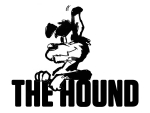The Ministry for Primary Industries (MPI) is beginning a second round of nationwide milk testing, checking the country's dairy herd for the presence of Mycoplasma bovis.
Under the programme, milk samples from every New Zealand dairy farm will be taken shortly after the start of calving, when cows are most likely to be shedding the bacterium. Samples will be collected from each farm approximately 4 weeks following the start of supply, with the first samples expected to be collected in the North Island in late July.
Mycoplasma bovis is very difficult to test for as animals can be carrying the bacteria but not appear ill or show evidence of it in their blood or milk, MPI says.
Testing at this time of year, when cows are in the early weeks of lactation and under some physical stress (and therefore more likely to be shedding), will yield the most accurate results and provide further information and assurance about the location of the disease in New Zealand.
MPI's director of response Geoff Gwyn says farmers won't have to do anything as all test samples will be collected as part of the standard on-tanker test process.
"Samples will be collected from each farm every 2 weeks up to a total of 6 samples over 12 weeks and tested by Milk TestNZ. Tests will look for both the presence of antibodies to Mycoplasma bovis and also the DNA of the bacterium."
Gwyn says the bacterium itself presents no food safety concern. Most dairying countries live with Mycoplasma bovis and safely consume milk products.
Farmers can expect to receive more information about the testing programme from their dairy companies this week. Dairy companies are working with MPI to support the delivery of the programme, and the wider Mycoplasma bovis eradication plan.
Once the programme is completed, farmers with "not-detected" results will receive an email from their dairy company confirming the disease has not been found in their samples. Those in the North Island will receive their results on or before 1 November and those in the South Island will hear on or before 15 November.
Any farm that has a sample where Mycoplasma bovis is detected will be contacted immediately by MPI and given details of the next steps.
Gwyn says farms that receive a not-detected result can take some assurance that the bacterium was not in the samples provided.
"Unfortunately, however, the complex nature of Mycoplasma bovis means results cannot be taken as a guarantee the farm is free of the infection."
As the eradication programme continues, it's likely that more rounds of this testing will take place to ultimately confirm that the disease is gone and eradication has been successful.











